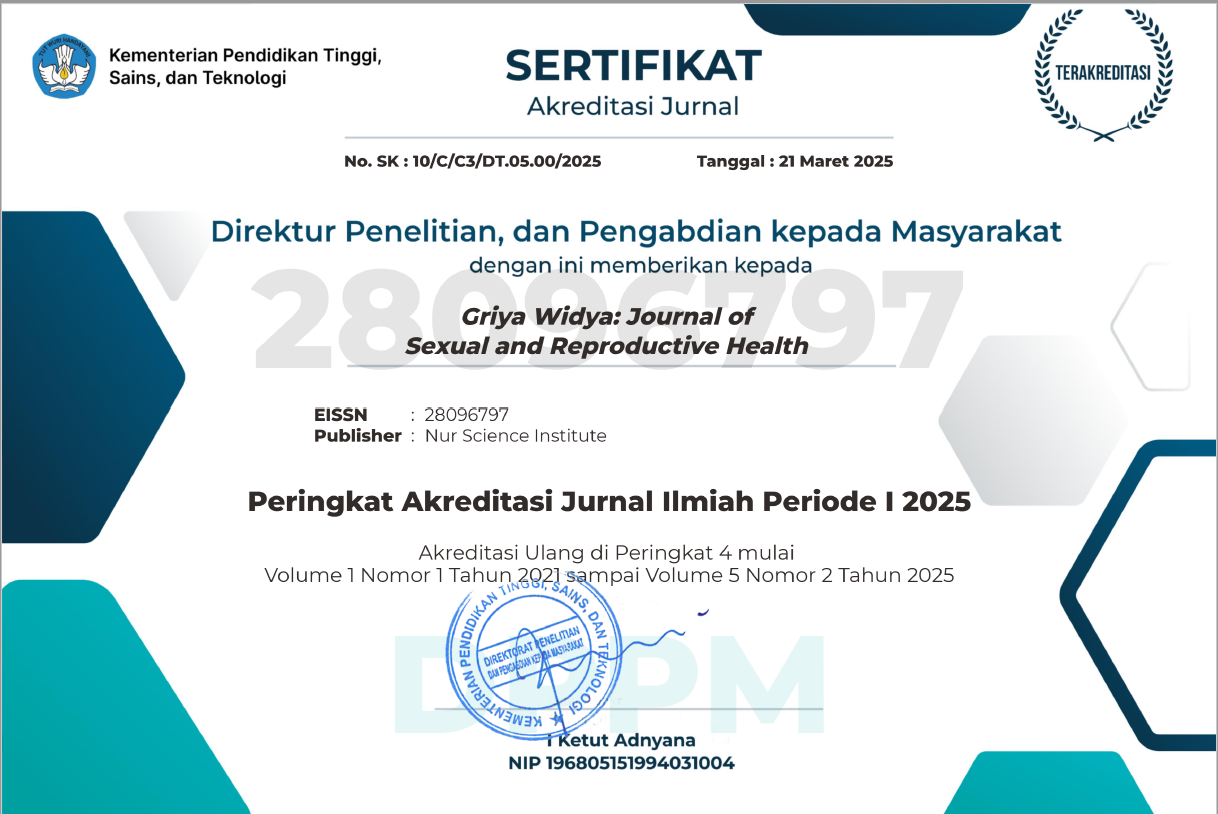Seberapa Baik Pengetahuan Dasar Kesehatan Reproduksi Siswa Sekolah Dasar?
Keywords:
Elementary School, reproductive health education, Adolescents, basic knowledgeAbstract
Background: The 2007 Indonesian Adolescent Reproductive Health Survey highlights limited knowledge among adolescents regarding pubertal signs, often recognizing only physical changes. The purpose of this study is to reveal basic knowledge of reproductive health in adolescents at Ward 1 State Elementary School, Kediri City.
Method: A preliminary study conducted on December 16, 2017, at Public Elementary School Bagsal 1, Kediri City, involved 15 sixth-grade respondents. Findings indicated that 11 respondents (73.3%) lacked knowledge on changing sanitary pads, and 12 respondents (80%) were unaware of risky sexual behaviors.
Result: Reproductive health encompasses physical, mental, and social well-being necessary for reproductive processes, including reproductive capacity and successful childbirth, pivotal in the transition to adulthood. It often brings about various physical changes, such as increased height, body muscle, acne, the growth of hair in the armpits and genitals, the growth of breasts, changes in voice, and the growth of a mustache in boys.
Implication: The findings underscore the critical need to enhance reproductive health education among adolescents in elementary schools. Addressing gaps in knowledge about puberty signs, menstrual hygiene, and risky sexual behaviors is crucial to promoting informed decision-making and healthy behaviors among young individuals. Educators and health practitioners play pivotal roles in providing accurate information and fostering open discussions to empower adolescents with essential knowledge for their reproductive health.
References
Aryani, N. P., Idyawati, S., & Salfarina, A. L. (2022). Kurangnya Tingkat Pengetahuan Remaja Tentang Kesehatan Reproduksi. Jurnal LENTERA, 2(1), 148-153.
Azis, A. A., & Pratiwi, A. C. (2019). Tingkat Pengetahuan Kesehatan Reproduksi Remaja di Kota Makassar. In: PROSIDING SEMINAR NASIONAL LP2M UNM “Peran Penelitian dalam Menunjang Percepatan Pembangunan Berkelanjutan di Indonesia”
Dwimawati, E., & Anisa, N. (2018). Faktor-faktor yang berhubungan dengan pengetahuan kesehatan reproduksi remaja di SMK YAK 1 bogor kecamatan tanah sareal kota Bogor provinsi Jawa Barat tahun 2018. Promotor, 1(2), 80-86.
Irianto, K.. (2014). Biologi Reproduksi. Bandung: Alfabeta.
Kartikasari, D., Ariwinanti, D., & Hapsari, A. (2019). Gambaran pengetahuan kesehatan reproduksi siswa smk wisnuwardhana kota malang. Preventia: The Indonesian Journal of Public Health, 4(1), 36.
Lukmana, C. I., & Yuniarti, F. A. (2017). Gambaran tingkat pengetahuan kesehatan reproduksi remaja pada siswa SMP di Yogyakarta. IJNP (Indonesian Journal of Nursing Practices), 1(3), 115-123.
Nursalam. (2013). Metodologi Penelitian Ilmu Keperawatan Edisi 3. Jakarta: Salemba Medika.
Rohan, H. H.. (2013). Buku Ajar Kesehatan Reproduksi. Yogyakarta: Nuha Medika.
Sarwono, S. W. (2012). Psikologi Remaja. Jakarta: PT RAJAGRAFINDO PERSADA.
WHO. (2022). Adolescent health. Diakses tanggal 3 April 2022, dari https://www.who.int/southeastasia/health-topics/adolescent-health
Downloads
Published
How to Cite
Issue
Section
License
Copyright (c) 2023 Kadek Ayu CIntya Dewi

This work is licensed under a Creative Commons Attribution-ShareAlike 4.0 International License.
Authors who publish with this journal agree to the following terms:
The author(s) retain copyright and grant the journal the right of first publication with the work simultaneously licensed under a CC BY-SA 4.0 license that allows others to remix, adapt, and build upon the work even for commercial purposes, as long as they credit the author(s) and license their new creations under the identical terms.
License details: https://creativecommons.org/licenses/by-sa/4.0/



